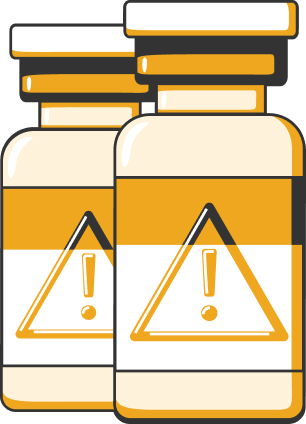- Home
Tirzepatide Side Effects You Should Know About
Tirzepatide offers significant benefits. However, like all medications, it comes with its own set of side effects. Understanding these potential adverse reactions is crucial for patients and healthcare providers alike. This article explores the side effects of Tirzepatide, aiming to shed light on what users might expect and how to effectively manage these concerns for optimal health outcomes.

Most Common Tirzepatide Side Effects

Most Common Tirzepatide Side Effects
Tirzepatide, a medication for managing type 2 diabetes and helping with weight loss, has been a game-changer for many. However, like any medication, it can cause side effects. Here are some of the most common ones to be aware of:
- Nausea: Feeling nauseous is one of the most reported side effects. This usually gets better as your body adjusts to the medication.
- Diarrhea: Some people might experience loose stools or an urgent need to go to the bathroom.
- Vomiting: Along with nausea, vomiting can occur, especially in the early stages of treatment.
- Reduced Appetite: You might find you're not as hungry as usual, which can contribute to weight loss.
- Bloating and Gas: Feeling bloated or having gas is another common side effect, which can be uncomfortable but manageable.
- Constipation: On the flip side of diarrhea, some individuals might struggle with regular bowel movements.
- Fatigue: Feeling unusually tired or weak may occur when starting Tirzepatide.
Common Side Effects:
- Nausea
- Diarrhea
- Decreased appetite
- Vomiting
- Stomach pain
- Constipation
- Fatigue
- Bloating and gas
- Heartburn
- Upset stomach
Other Notable Side Effects:
- Difficulty in breathing or swallowing
- Fast heartbeat
- Gaseous stomach pain
- Recurrent fever
- Skin itching, rash, or redness
- Stomach fullness
- Swelling, redness, or itching at the injection site
- Dizziness
- Headache
- Tingling hands/feet
- Sudden sweating
- Blurred vision
Serious Side Effects:
- Acute kidney injury: symptoms include bloody urine, decreased urine output, muscle twitching
- Risk of thyroid cancer: noted with a boxed warning for Mounjaro, a brand name for Tirzepatide
While Tirzepatide is effective, there are important precautions to keep in mind to ensure it's used safely.
Share Your Medical History: Before starting Tirzepatide, tell your doctor about any health issues, especially stomach or digestive problems, kidney issues, or if you've had pancreatitis.
Pregnancy and Breastfeeding Concerns: If you're pregnant, planning to get pregnant, or breastfeeding, discuss with your doctor whether Tirzepatide is safe for you. The effects on pregnancy and breastfeeding aren't fully known.
Watch for Allergic Reactions: Some people might be allergic to Tirzepatide. If you notice symptoms like swelling, rash, or trouble breathing after taking it, get medical help right away.
Inform About Other Medications: Discuss with your doctor about all other medicines you're taking. Tirzepatide can interact with other drugs, which might affect how well it works or increase side effects.
Monitor Blood Sugar Levels: Even though Tirzepatide controls blood sugar, you should still regularly check your levels. Be aware of the signs of both high and low blood sugar and know how to manage them.
Be Careful with Injection Sites: If you're taking Tirzepatide through injections, change (rotate) the places where you inject it to help avoid skin problems.
Operating Vehicles: Tirzepatide may cause dizziness or affect your vision. Be careful when driving or using machines until you know how Tirzepatide affects you.
Keep Up With Doctor Appointments: Regular visits to your doctor are crucial. They can check your progress, adjust your dose if needed, and catch any side effects early.
Stay Hydrated: Some side effects, like nausea or diarrhea, can lead to dehydration. Make sure to drink plenty of fluids unless your doctor advises you differently.
Know When to Call Your Doctor: If you experience severe side effects such as persistent vomiting, severe abdominal pain, or unusual tiredness, contact your healthcare provider.